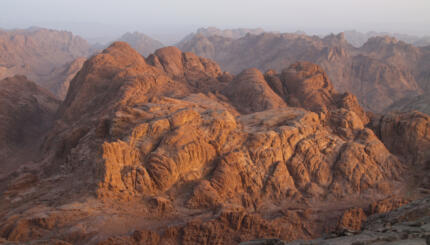The Torah presents itself as the source of the commandments governing Jewish practice. One might, assume, then, that the primary goal of studying Torah would be the explication of these commandments and the creation of a system for their implementation.
Within the rabbinic world, however, the wide-ranging enterprise called talmud Torah (Torah study, not to be confused with either the body of rabbinic literature known as the Talmud, or the Torah itself) also became a desired end on its own, rather than simply a means of determining law and practice. The rabbinic expression “v’talmud torah k’neged kulam”–usually translated as “…and Torah study is equivalent to all of [the other mitzvot]”–attests to the importance Jewish tradition assigns to learning.
In the period after the destruction of the Temple in Jerusalem, talmud Torah (along with liturgical prayer) replaced sacrifices as the primary means of worship. The rabbis even declared talmud Torah to be greater than the daily sacrificial offering and greater even than building the Temple. Rather than a less desirable replacement for a lost system, talmud Torah becomes a preferred means of divine worship (Babylonian Talmud (BT), Eruvin 63b).
In the rabbinic mind, Torah takes precedence over all else–even, in some cases, over God’s independent will. In a particularly bold theological statement, the rabbis suggest that the Torah predates the creation of the world, and that God uses the Torah as a blueprint for creation (Midrash Tanhuma, Bereishit 1:1). Similarly, the Talmud depicts God as spending the first three hours of every day studying Torah (BT Avodah Zarah 3b).
In portraying God as a student of Torah, the rabbis imply that they, who devote their lives to studying Torah, are modeling their own lives of learning on the Divine–and perhaps even place their own conclusions on par, as it were, with God‘s. As depicted in a famous talmudic story in which the rabbis overrule a divine pronouncement, God’s interpretation of Torah does not necessarily supercede human interpretation. Quoting Deuteronomy, they say of the Torah that it is “not in heaven” (BT Bava Metzia 59b).
Several rabbinic texts portray the creation of the world as conditional on the Jews’ ultimate acceptance of Torah. According to these texts, if the Jews had refused to accept the Torah, God would have returned the world to its pre-creation state. One midrash or interpretation depicts the world trembling on the day of revelation, lest the Jews refuse Torah and thus restore primordial chaos (Midrash Tehillim 75:1.)
 In the rabbinic mind, the preservation of the world is not guaranteed by the one-time acceptance of Torah, but must constantly be maintained through talmud Torah. One who studies Torah is thus considered to be holding up the entire world (Midrash Mishlei 9:1). In some parts of the contemporary Orthodox world, communal support of full-time students of Torah is justified by reference to this belief that Torah scholars sustain the world.
In the rabbinic mind, the preservation of the world is not guaranteed by the one-time acceptance of Torah, but must constantly be maintained through talmud Torah. One who studies Torah is thus considered to be holding up the entire world (Midrash Mishlei 9:1). In some parts of the contemporary Orthodox world, communal support of full-time students of Torah is justified by reference to this belief that Torah scholars sustain the world.
The term “talmud torah” does not necessarily (or even usually) refer specifically to the study of the Torah itself–that is, of the Five Books of Moses. Rather, talmud Torah may include the study of rabbinic texts, medieval commentaries, and later legal and ethical writings. The rabbis of the Talmud, in some places, prescribe devoting one third of one’s life each to Bible, Mishnah and Talmud (see, for example, BT Kiddushin 30a) and, in some places, privilege the study of Mishnah and Talmud. (See, for example, BT Bava Metzia 33a).
Since early medieval times, the curricula of yeshivot (institutions of traditional Jewish learning) have focused primarily on the study of Talmud and halakha (Jewish law), rather than on the biblical text. This emphasis on post-biblical material indicates the extent to which rabbinic interpretation has in some sense assumed a more authoritative position than even the biblical text, believed to be a manifestation of the unmediated divine voice.
In many traditional Jewish communities, the emphasis on talmud Torah as a primary means of worship has translated into the construction of batei midrash (“houses of study”) and yeshivot as the primary communal structures. Within this system, the talmid hakham (Torah scholar) becomes an authority in determining communal law and communal norms.
Differentiating between two modes of Jewish worship, Professor Louis Finkelstein, a 20th-century Jewish scholar, said, “When I pray, I speak to God; when I study, God speaks to me.” In this vein, talmud Torah might loosely be defined as any Jewish study done with a sense of the sacred. Contemporary talmud Torah might encompass the study of history, poetry, and prayer, as well as that of Talmud, Bible, midrash and halakha. The object of study becomes less important than the mode of study, which strives to foster dialogue between humans and God.
Bereishit
Pronounced: buh-RAY-SHEET, Origin: Hebrew, literally, “in the beginning,” it’s the Hebrew name for Genesis, the first book of the Torah.
Mishnah
Pronounced: MISH-nuh, Origin: Hebrew, code of Jewish law compiled in the first centuries of the Common Era. Together with the Gemara, it makes up the Talmud.
Talmud
Pronounced: TALL-mud, Origin: Hebrew, the set of teachings and commentaries on the Torah that form the basis for Jewish law. Comprised of the Mishnah and the Gemara, it contains the opinions of thousands of rabbis from different periods in Jewish history.
Torah
Pronunced: TORE-uh, Origin: Hebrew, the Five Books of Moses.


